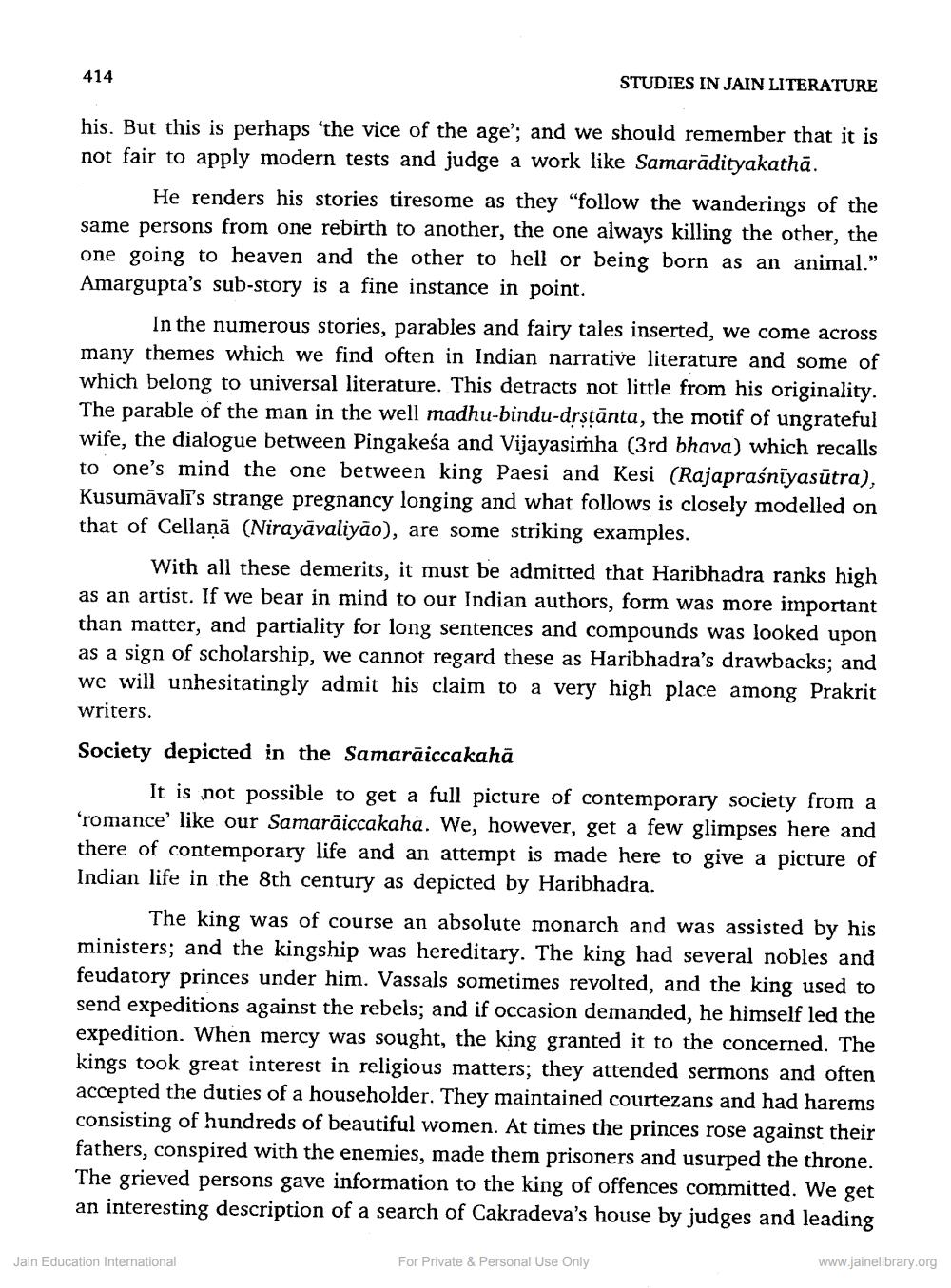________________ 414 STUDIES IN JAIN LITERATURE his. But this is perhaps the vice of the age'; and we should remember that it is not fair to apply modern tests and judge a work like Samaradityakatha. He renders his stories tiresome as they "follow the wanderings of the same persons from one rebirth to another, the one always killing the other, the one going to heaven and the other to hell or being born as an animal." Amargupta's sub-story is a fine instance in point. In the numerous stories, parables and fairy tales inserted, we come across many themes which we find often in Indian narrative literature and some of which belong to universal literature. This detracts not little from his originality. The parable of the man in the well madhu-bindu-drstanta, the motif of ungrateful wife, the dialogue between Pingakesa and Vijayasimha (3rd bhava) which recalls to one's mind the one between king Paesi and Kesi (Rajaprasniyasutra), Kusumavali's strange pregnancy longing and what follows is closely modelled on that of Cellana (Nirayavaliyao), are some striking examples. With all these demerits, it must be admitted that Haribhadra ranks high as an artist. If we bear in mind to our Indian authors, form was more important than matter, and partiality for long sentences and compounds was looked upon as a sign of scholarship, we cannot regard these as Haribhadra's drawbacks; and we will unhesitatingly admit his claim to a very high place among Prakrit writers. Society depicted in the Samaraiccakaha It is not possible to get a full picture of contemporary society from a 'romance' like our Samaraiccakaha. We, however, get a few glimpses here and there of contemporary life and an attempt is made here to give a picture of Indian life in the 8th century as depicted by Haribhadra. The king was of course an absolute monarch and was assisted by his ministers; and the kingship was hereditary. The king had several nobles and feudatory princes under him. Vassals sometimes revolted, and the king used to send expeditions against the rebels; and if occasion demanded, he himself led the expedition. When mercy was sought, the king granted it to the concerned. The kings took great interest in religious matters; they attended sermons and often accepted the duties of a householder. They maintained courtezans and had harems consisting of hundreds of beautiful women. At times the princes rose against their fathers, conspired with the enemies, made them prisoners and usurped the throne. The grieved persons gave information to the king of offences committed. We get an interesting description of a search of Cakradeva's house by judges and leading For Private & Personal Use Only www.jainelibrary.org Jain Education International




